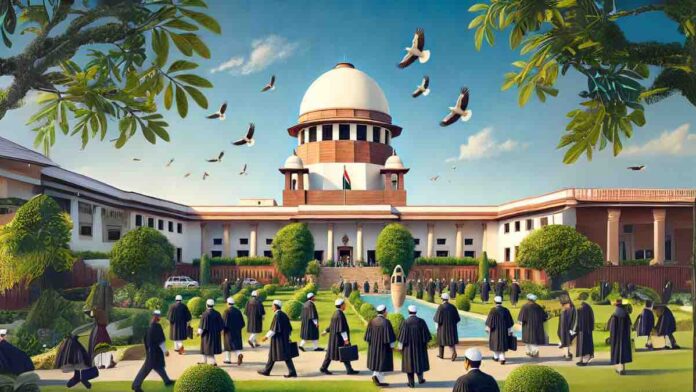The Supreme Court of India dismissed an appeal filed by the State of Haryana, affirming a Punjab and Haryana High Court judgment which held that surplus land contributed by proprietors for common village purposes during consolidation, but not actually earmarked or used for such purposes, must revert to the original landowners. A three-judge bench, comprising
To Read More Please Subscribe to VIP Membership for Unlimited Access to All the Articles, Download Available Copies of Judgments/Order, Acess to Central/State Bare Acts, Advertisement Free Content, Access to More than 4000 Legal Drafts( Readymade Editable Formats of Suits, Petitions, Writs, Legal Notices, Divorce Petitions, 138 Notices, Bail Applications etc.) in Hindi and English.




